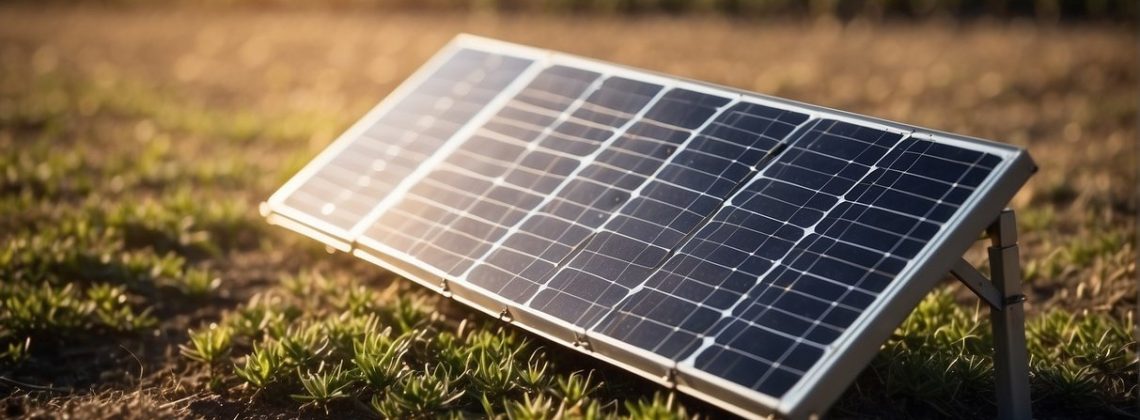
Power grid failures can be caused by a variety of factors, including natural disasters, cyberattacks, and equipment failures. While the initial response to a grid collapse is critical, long-term survival strategies are equally important. Alternative energy solutions can provide a reliable source of power when the grid is down, enabling you to maintain essential systems such as lighting, heating, and refrigeration.
Alternative energy solutions include a range of options, from solar panels and wind turbines to generators and battery backup systems. These solutions can be used to power your home or business, as well as critical infrastructure such as hospitals and water treatment plants. By investing in alternative energy solutions, you can reduce your dependence on the power grid and increase your resilience in the face of a crisis.
Key Takeaways
- Alternative energy solutions can provide a reliable source of power during a power grid collapse.
- Options include solar panels, wind turbines, generators, and battery backup systems.
- By investing in alternative energy solutions, you can increase your resilience and reduce your dependence on the power grid.
Understanding the Power Grid
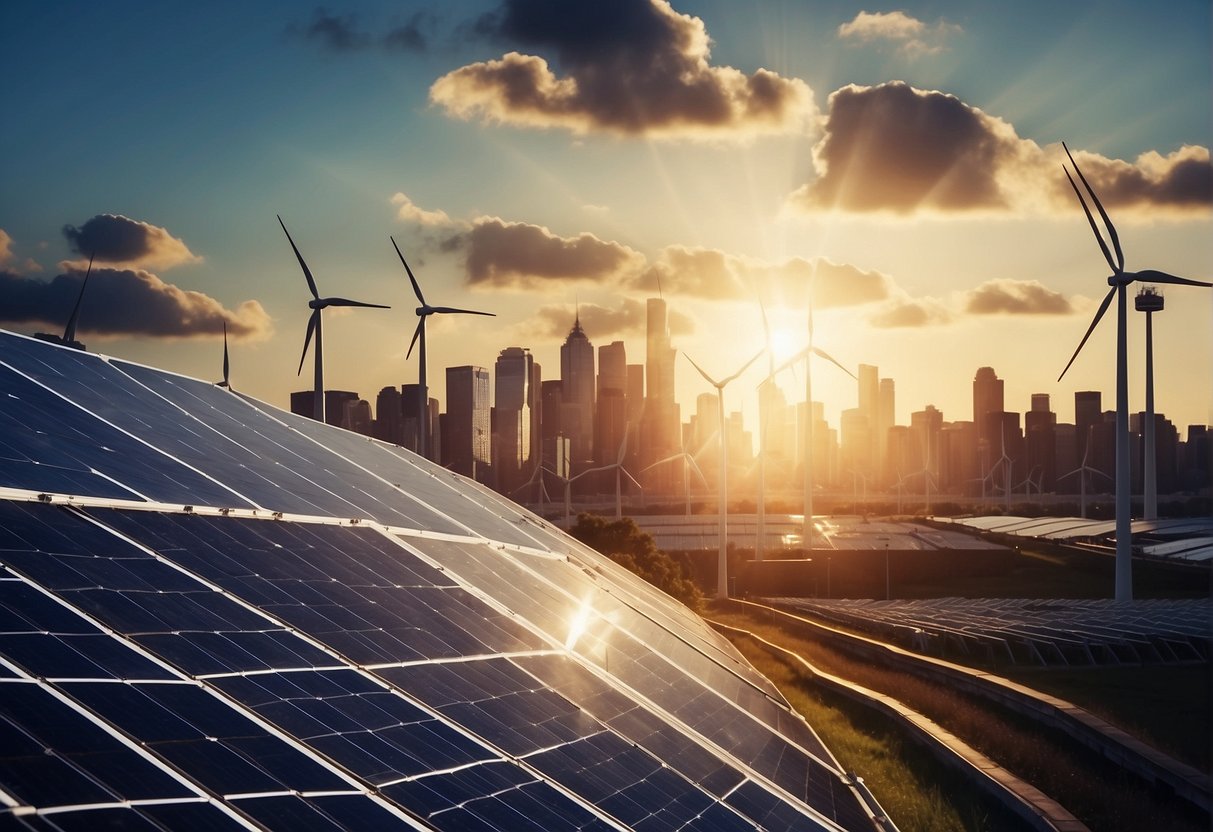
Components of the Electrical Grid
The electrical grid is a complex system that consists of power plants, transmission lines, substations, and distribution systems. Power plants generate electricity, which is then transmitted through high-voltage transmission lines to substations. Substations lower the voltage and distribute the electricity to homes and businesses through distribution systems.
Causes of Power Grid Failures
Power grid failures can be caused by a variety of factors, including natural disasters, extreme weather events, and human error. Climate change has also made the power grid more vulnerable to failure. For example, extreme weather events such as hurricanes, tornadoes, and snowstorms can damage transmission lines and substations, causing power outages.
Impact of Blackouts on Society
Blackouts can have a significant impact on society, disrupting daily life and causing economic losses. In addition to the inconvenience of losing power, blackouts can also lead to food spoilage, water shortages, and communication breakdowns. In some cases, blackouts can even be life-threatening, particularly for people who rely on medical equipment that requires electricity to function.
To prepare for a power grid collapse, it is important to understand the components of the electrical grid, the causes of power grid failures, and the impact of blackouts on society. By doing so, you can take steps to mitigate the effects of a power outage and ensure that you and your family are prepared for any crisis that may arise.
Initial Response to a Grid Collapse
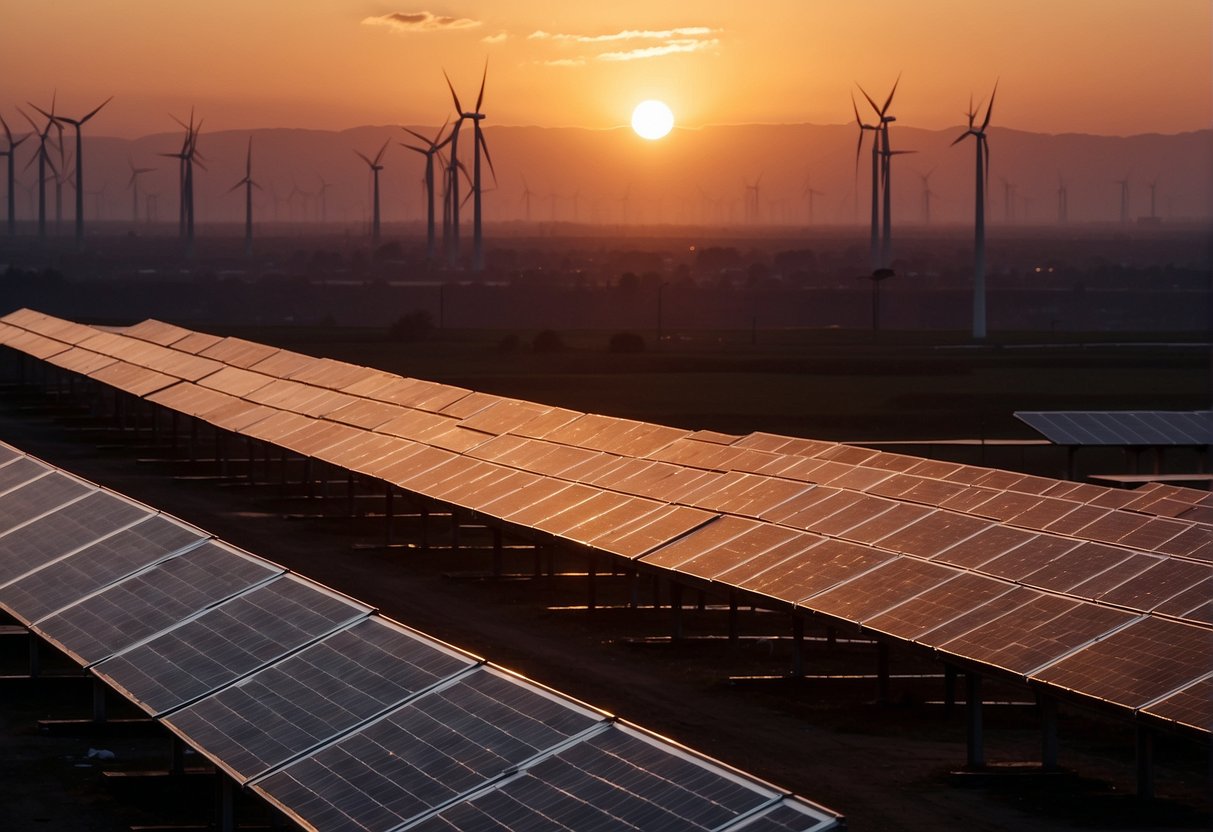
When a power grid collapses, it can lead to a wide range of problems. You may experience a lack of electricity, water, and other basic necessities. Here are some initial steps you can take to respond to a power grid collapse.
Emergency Communication Methods
In the event of a power grid collapse, communication can be difficult. You may not have access to your phone or internet. Therefore, it is important to have alternative communication methods. You can use radios or walkie-talkies to communicate with your family or friends. You can also use satellite phones or HAM radios to communicate with emergency responders.
Securing Basic Needs
When a power grid collapses, you may experience a lack of basic necessities such as water, food, and fuel. You should ensure that you have enough water and food to last for several days. You can store water in containers and make sure you have a water treatment method such as a filter or purification tablets. You can also store non-perishable food items such as canned goods and dried fruits. It is also important to have a backup source of fuel for heating and cooking.
Establishing a Safe Location
In the event of a power grid collapse, it is important to establish a safe location. You should find a secure location where you can protect yourself and your family. This location should be away from any potential dangers such as extreme weather, floods, or fires. You should also make sure that this location has access to basic necessities such as water and food.
Overall, the initial response to a power grid collapse should focus on securing basic needs, establishing a safe location, and having alternative communication methods. By taking these steps, you can increase your chances of surviving a power grid collapse.
Alternative Energy Solutions
When the power grid collapses, having alternative energy solutions can mean the difference between survival and disaster. There are several clean energy technologies available that can provide power in the event of a grid failure. In this section, we will explore three of the most popular options: solar power systems, wind energy options, and hydro and geothermal energy.
Solar Power Systems
Solar power systems are a popular option for off-grid power. They work by converting sunlight into electricity, providing a clean and renewable energy source. Solar panels can be installed on rooftops or on the ground, and they come in a range of sizes to suit different needs.
One of the advantages of solar power systems is that they are relatively low maintenance. Once installed, they require very little attention. However, they do require a clear view of the sun, so if you live in an area with a lot of cloud cover, solar power may not be the best option for you.
Wind Energy Options
Wind turbines are another popular option for off-grid power. They work by harnessing the power of the wind to generate electricity. Wind turbines come in a range of sizes, from small residential models to large commercial units.
One of the advantages of wind energy is that it can be a more consistent source of power than solar. Wind turbines can generate electricity day or night, as long as there is enough wind to turn the blades. However, they do require a certain amount of wind to operate effectively, so if you live in an area with very little wind, wind energy may not be the best option for you.
Hydro and Geothermal Energy
Hydro and geothermal energy are two less common options for off-grid power. Hydro power works by using the force of moving water to generate electricity, while geothermal power works by tapping into the heat of the earth to generate electricity.
One advantage of hydro and geothermal power is that they can be very reliable sources of power. However, they do require specific conditions to operate effectively. Hydro power requires a source of flowing water, while geothermal power requires access to underground heat sources.
In conclusion, there are several alternative energy solutions available that can provide power in the event of a power grid collapse. Solar power systems, wind energy options, and hydro and geothermal energy are all viable options, depending on your location and specific needs. By investing in these technologies, you can ensure that you have a reliable source of power, even in the most challenging of circumstances.
Long-Term Survival Strategies
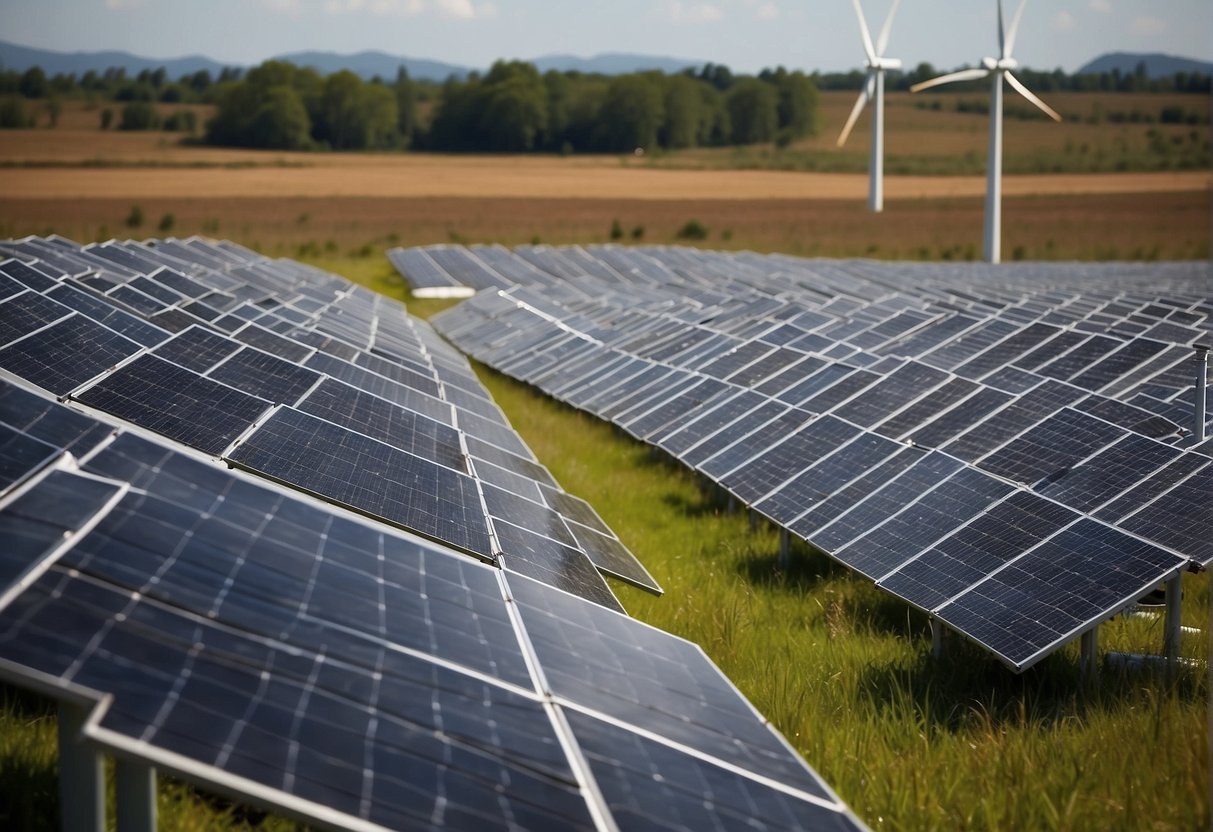
When the power grid collapses, it is important to have long-term survival strategies in place to ensure that you and your loved ones can survive without electricity for an extended period. Here are some key strategies to consider:
Food and Water Preservation
Stockpiling food and water is essential for long-term survival. You should aim to have at least a six-month supply of non-perishable food items and clean drinking water. You can also consider drying and preserving food to extend its shelf life. Digging a well is another option to ensure a reliable water supply.
Shelter and Heating Solutions
Without electricity, heating your home during the winter months can be a challenge. Wood-burning stoves and fireplaces are a good alternative heating source, but you should ensure that you have a sufficient supply of firewood. Insulating your home and sealing any drafts will also help to retain heat.
Self-Defense and Security
In a power grid collapse, the risk of marauders and looters is high. It is important to have a plan in place to protect yourself and your property. Consider investing in weapons such as shotguns and ammunition for self-defense. You should also fortify your home and property to deter potential intruders.
Remember, long-term survival in a power grid collapse requires careful planning and preparation. By stockpiling food and water, ensuring a reliable source of heat, and protecting yourself and your property, you can increase your chances of survival and avoid the risk of starvation and danger.
Community and Reconstruction Efforts
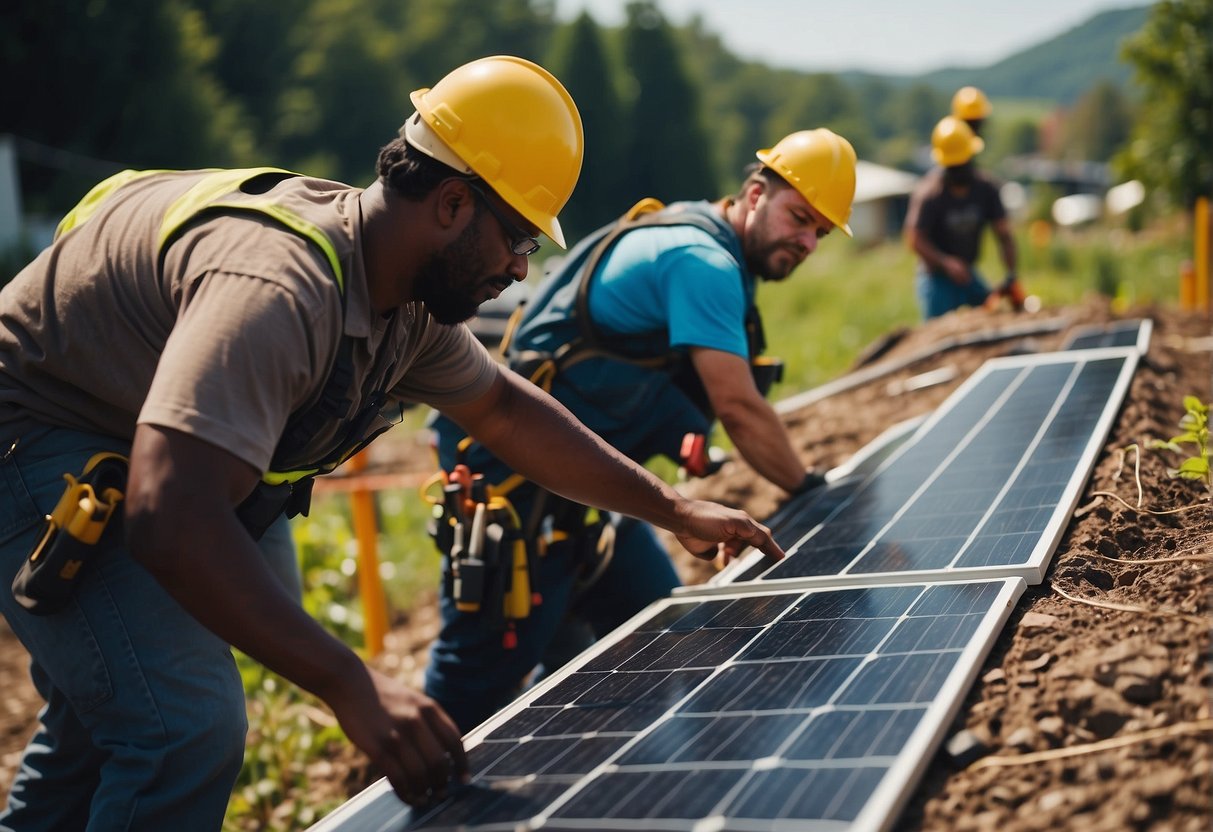
When the power grid goes down, it’s essential to work together as a community to survive and recover. Here are some strategies for building local alliances, restoring critical infrastructure, and planning for future resilience.
Building Local Alliances
One of the most critical steps in surviving a power grid collapse is building alliances with your neighbors. You can start by organizing neighborhood meetings to discuss emergency preparedness plans. Share your knowledge of alternative energy solutions, such as solar panels, wind turbines, and generators, and work together to create a community-wide emergency power supply.
Restoring Critical Infrastructure
After a power grid collapse, restoring critical infrastructure is essential to ensure the safety and well-being of your community. Hospitals, water treatment plants, and other critical facilities must have reliable power supplies to operate. You can work with local government officials, utility companies, and other organizations to prioritize the restoration of critical infrastructure.
Planning for Future Resilience
While restoring critical infrastructure is essential, it’s also crucial to plan for future resilience. The Department of Energy has developed models for improving the efficiency of the power grid, incorporating renewable energy resources, and supporting electric vehicles and charging stations. You can work with local officials to implement these models and improve the resiliency of your community’s power supply.
In addition to these strategies, it’s also essential to prepare for potential violence, security threats, and hackers. Prepping your home with reliable power sources, such as solar panels and generators, can help ensure your safety and security during a power grid collapse. You can also invest in backup pumps and lights to ensure a steady supply of water and lighting.
In conclusion, surviving a power grid collapse requires a combination of community efforts, critical infrastructure restoration, and future resilience planning. By working together and implementing alternative energy solutions, you can ensure your community’s survival and recovery during an emergency.
Technological Adaptations and Innovations
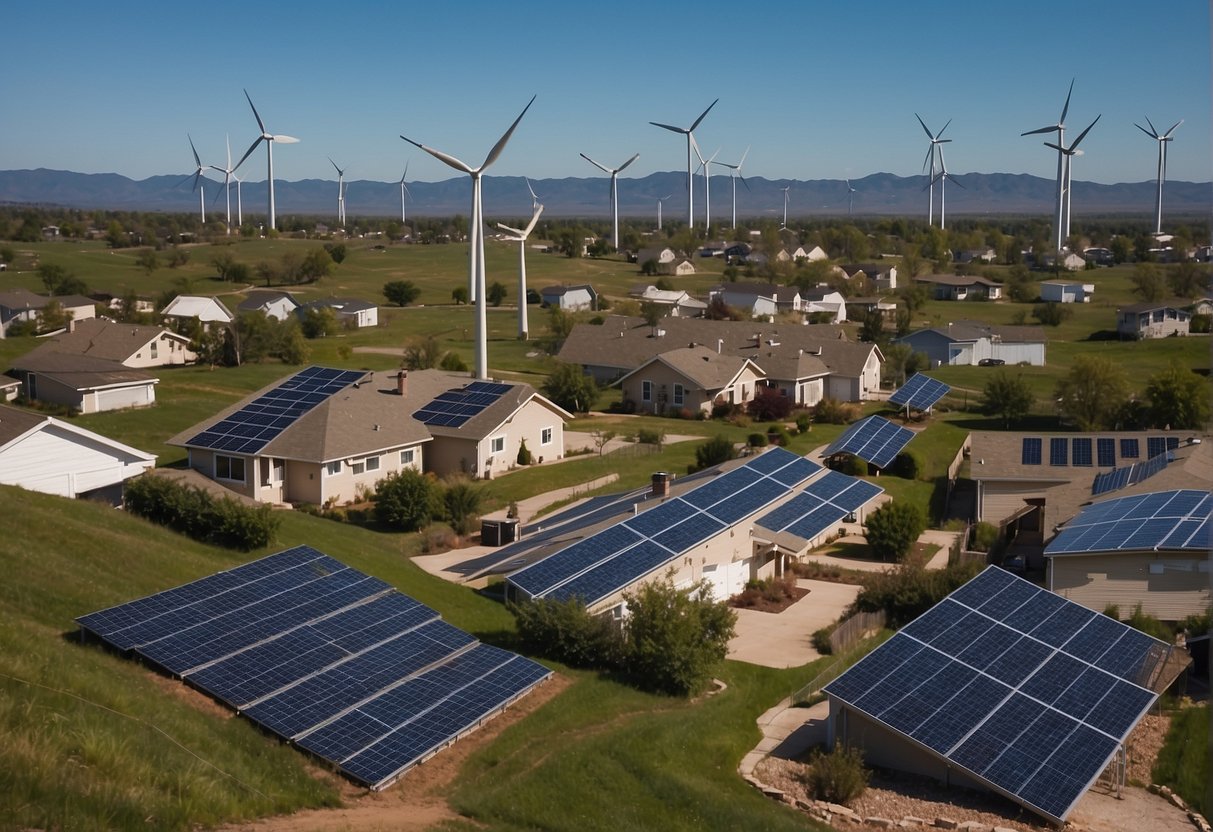
Energy Storage and Battery Backups
One of the most significant challenges during a power grid collapse is the lack of energy storage and backup systems. However, recent technological advancements have made it possible to store energy and use it during emergencies. You can use battery backups to power your home during outages, and solar panels can charge the batteries during the day. In addition, you can use smart batteries that automatically switch to backup mode when the power goes out.
Smart Grids and Grid Modernization
Smart grids and grid modernization are essential for managing power during emergencies. These technologies use computers and sensors to monitor the power grid and detect any issues. They can also automatically reroute power to prevent outages and ensure that critical infrastructure remains operational. Smart grids also enable the integration of renewable energy sources into the grid, which is crucial for reducing carbon emissions and increasing resiliency.
Electric Vehicles and Infrastructure
Electric vehicles (EVs) and infrastructure can also play a vital role in surviving a power grid collapse. EVs can function as mobile batteries, allowing you to store and use energy during emergencies. Charging stations can also serve as backup power sources for critical infrastructure, such as hospitals and emergency response centers. Furthermore, microgrids, which are small-scale power grids that can operate independently from the main grid, can incorporate EVs and charging stations to increase resiliency.
In conclusion, technological adaptations and innovations can significantly improve your chances of surviving a power grid collapse. Energy storage and battery backups, smart grids and grid modernization, and electric vehicles and infrastructure are just a few examples of the technologies that can help you prepare for emergencies. By investing in these technologies, you can increase your resiliency and ensure that you have access to power when you need it most.
Personal Preparedness and Skill Development
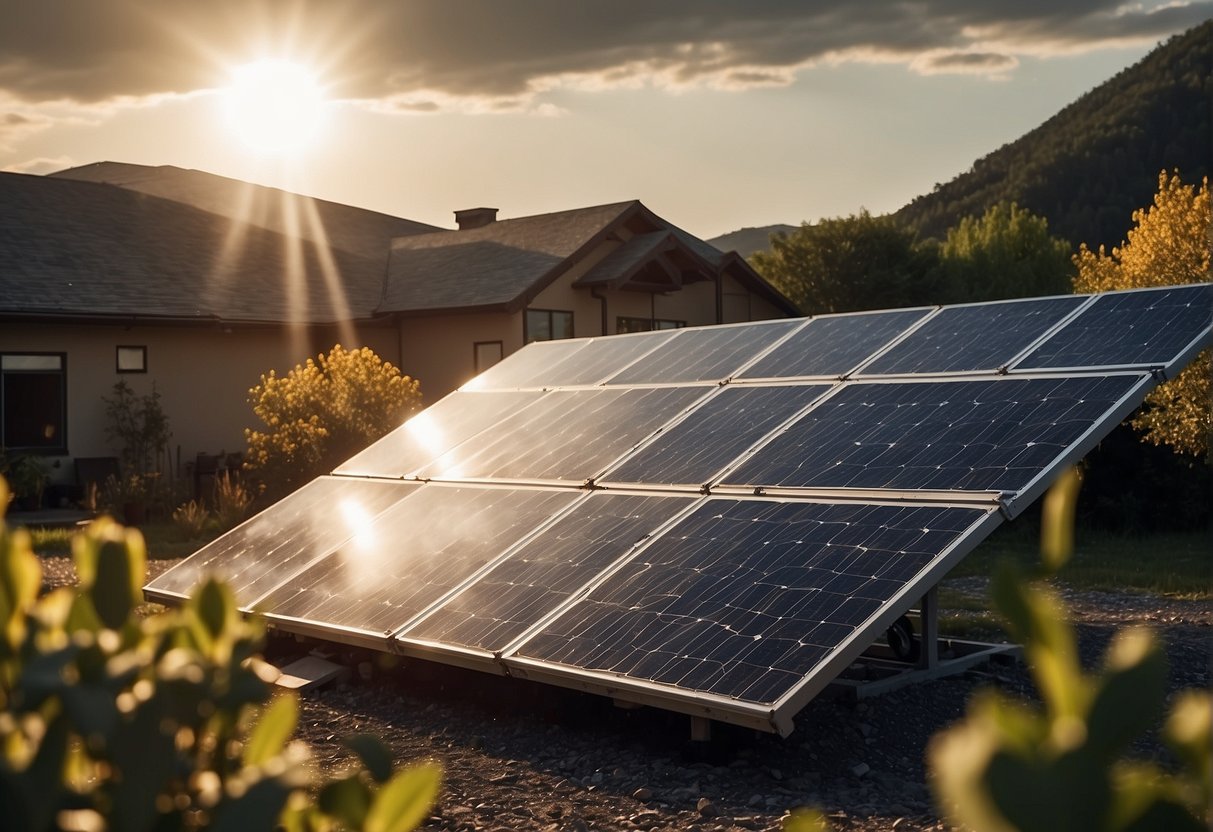
When it comes to surviving a power grid collapse, personal preparedness and skill development are crucial. Here are some key areas to focus on:
First Aid and Medical Training
In a grid-down scenario, medical supplies may be scarce, and professional medical assistance may not be available. That’s why it’s important to have some basic first aid and medical training. Consider taking a first aid course or a wilderness medicine course to learn how to treat injuries and illnesses in a survival situation. Stock up on medical supplies, such as bandages, antiseptics, and pain relievers, so you can treat minor injuries and illnesses.
Mechanical and Technical Skills
In a power grid collapse, mechanical and technical skills can be invaluable. You may need to repair equipment, build structures, or create makeshift tools to survive. Consider learning basic mechanics, carpentry, and metalworking skills. You may also want to learn how to use alternative energy sources, such as solar panels or wind turbines, to generate power.
Survival Skills and Education
Survival skills and education are essential for surviving a power grid collapse. Learn how to start a fire without matches, purify water, and find food in the wilderness. Consider taking a survival course or joining a survival group to learn from experienced preppers. You may also want to stock up on survival gear, such as knives, flashlights, and water filters, to help you in a survival situation.
By developing these skills and preparing for a grid-down scenario, you can increase your chances of survival. Remember to stay calm, stay informed, and stay prepared.
Legal and Ethical Considerations
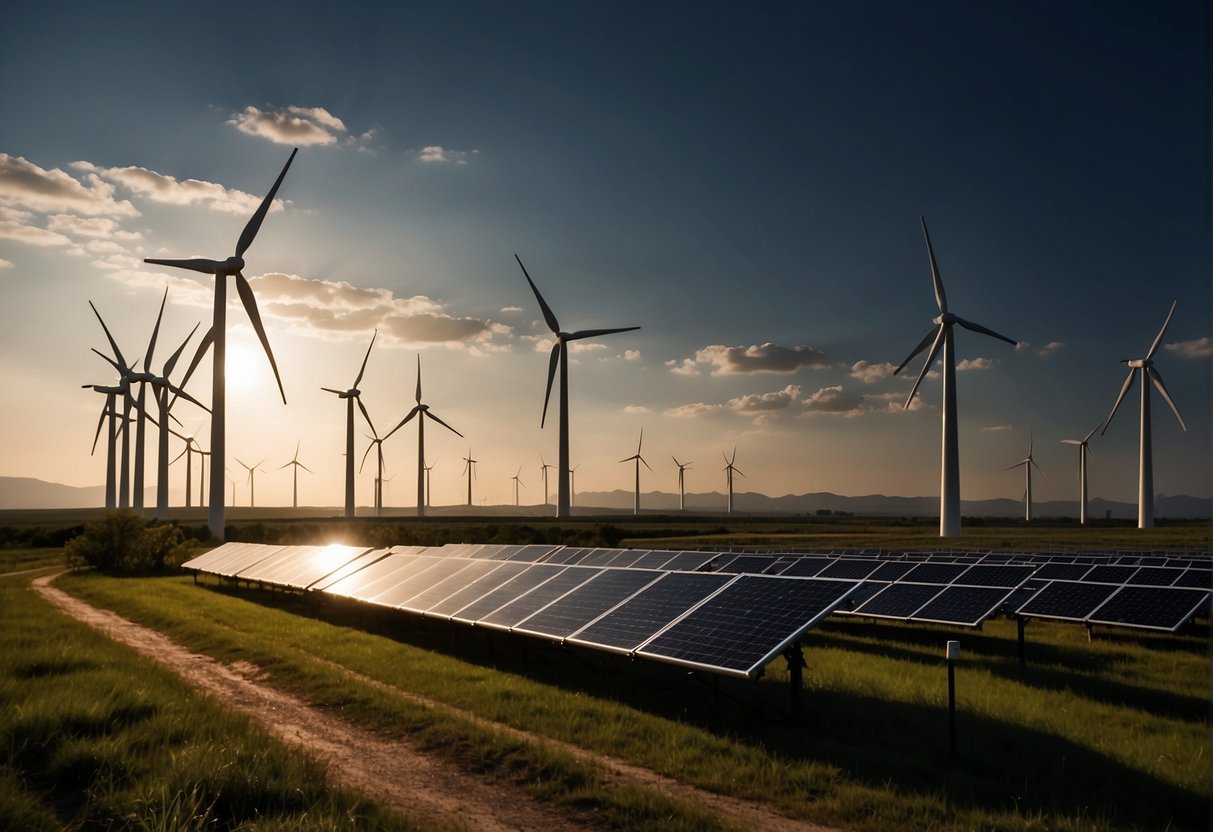
Understanding Government Protocols
In the event of a power grid collapse, it is important to understand the government’s protocols for protecting citizens and maintaining law and order. Government agencies such as FEMA and the Department of Homeland Security have emergency plans in place to respond to such situations. It is important to familiarize yourself with these plans and protocols before a crisis occurs.
In addition, it is important to understand the role of law enforcement and the military in a post-collapse society. They will likely be responsible for maintaining order and protecting citizens, but it is important to remember that their resources will be limited. It is important to cooperate with them and follow their instructions to ensure your safety and the safety of others.
Navigating Post-Collapse Law and Order
In a post-collapse society, the rule of law may be weakened or nonexistent. It is important to be aware of this and take steps to protect yourself and your property. This may include securing your home and belongings, forming community watch groups, and avoiding dangerous areas.
It is also important to be aware of the potential for violence and to take steps to protect yourself and your loved ones. This may include obtaining weapons for self-defense, but it is important to do so legally and responsibly. It is also important to remember that violence should always be a last resort and that ethical decision-making is crucial in a crisis.
Ethical Decision-Making in Crisis
In a crisis situation, it is important to make ethical decisions that prioritize the well-being of yourself and others. This may include sharing resources with those in need, helping to maintain order and stability, and avoiding actions that could harm others. It is important to remember that your actions can have a significant impact on those around you, and that ethical decision-making is crucial to the survival and well-being of everyone in a post-collapse society.
Environmental Factors and Climate Change
When it comes to surviving a power grid collapse, environmental factors and climate change play a significant role. Adapting to extreme weather patterns, sustainable living, and resource management, and understanding the impact of climate change on energy security are crucial for alternative energy solutions.
Adapting to Extreme Weather Patterns
Extreme weather patterns can cause power outages, which can last for days or even weeks. Floods, hurricanes, and snowstorms can damage power lines and other infrastructure, leaving you without electricity. To prepare for such situations, you should consider investing in a backup power source, such as solar panels or a generator. Additionally, you should store enough food, water, and other essential supplies to last you through the outage.
Sustainable Living and Resource Management
Sustainable living and resource management can help reduce your reliance on the power grid. Conserving water, reducing waste, and using energy-efficient appliances can help you save money and reduce your carbon footprint. Consider installing a rainwater harvesting system or a composting toilet to reduce your water usage, and use natural light and ventilation to reduce your energy consumption.
Impact of Climate Change on Energy Security
Climate change can have far-reaching effects on the electricity grid, which could cost billions and affect every aspect of the grid from generation, transmission, and distribution to demand for electricity. The large-scale integration of environment-dependent renewable energy, coupled with intensifying climate extremes, brings superimposed risks to power systems. Climate extremes affect power systems, and it is essential to invest in clean energy technologies that can help reduce greenhouse gas emissions and mitigate the impact of climate change on energy security.
In summary, adapting to extreme weather patterns, sustainable living, and resource management, and investing in clean energy technologies are crucial for surviving a power grid collapse. By taking these steps, you can reduce your reliance on the power grid and ensure that you have access to essential resources during a power outage.
Economic Impacts and Financial Planning
A power grid collapse can cause a significant economic impact, leading to a shortage of supplies, increased prices, and job losses. It is essential to prepare financially for such an eventuality to minimize the impact on your finances.
Managing Finances During a Blackout
During a power grid collapse, you may not have access to your bank account or credit cards. It is vital to have cash on hand to purchase essential items. You should also have a budget in place to manage your expenses during the blackout.
Bartering and Alternative Currencies
Bartering can be an effective way to obtain essential items during a power grid collapse. You can trade goods or services for items you need. It is also essential to consider alternative currencies, such as gold and silver, which can hold their value during a crisis.
Long-Term Economic Stability
A power grid collapse can have long-term economic consequences. It is essential to plan for the long-term economic stability of your household. You should have a savings plan in place, invest in alternative energy sources, and consider the impact of the crisis on your job and income.
In conclusion, preparing financially for a power grid collapse is crucial to minimize the economic impact. Managing your finances, considering alternative currencies, and planning for long-term economic stability can help you survive a power grid collapse.
Physical and Mental Health Maintenance
In a power grid collapse situation, it’s important to prioritize physical and mental health maintenance. Here are some tips to help you stay healthy and focused during a crisis.
Stress Management in Crisis Situations
Stress is a natural response to a crisis situation. However, too much stress can be harmful to your physical and mental health. To manage stress, it’s important to take breaks and engage in relaxing activities. Try deep breathing exercises, meditation, or yoga to calm your mind and body. Additionally, try to maintain a routine as much as possible, as this can provide a sense of stability and control.
Maintaining Physical Health
During a power grid collapse, access to food and water may be limited. It’s important to prioritize your physical health by staying hydrated and well-nourished. Keep a supply of non-perishable food and water on hand, and ration your supplies to make them last as long as possible. Additionally, make sure to stay active by engaging in light exercise, such as walking or stretching.
Community Mental Health Resources
In a crisis situation, it’s important to remember that you’re not alone. Reach out to your community for support and resources. Local organizations may offer mental health services, such as counseling or support groups. Additionally, try to maintain social connections with family and friends, even if it’s just through phone or video calls. Remember, taking care of your mental health is just as important as taking care of your physical health.
By prioritizing physical and mental health maintenance, you can stay healthy and focused during a power grid collapse. Remember to stay calm, stay connected, and take care of yourself and those around you.
Communication and Information Networks
When a power grid collapse occurs, communication and information networks are often the first to go down. In such situations, it is crucial to have alternative communication systems in place to ensure you can stay connected with loved ones and receive important information.
Setting Up Emergency Communication Systems
One way to set up an emergency communication system is to have a battery-powered or hand-cranked radio. These radios can receive AM and FM stations, and some models can even receive shortwave broadcasts from around the world. You should also have extra batteries or a solar charger to keep your radio powered.
Another option is to have a cell phone with a backup battery or a solar charger. However, keep in mind that cell towers may also be down during a power grid collapse, making cell phones unreliable. In such cases, it is advisable to have a satellite phone or a two-way radio as a backup.
Accessing Information Without the Internet
During a power grid collapse, the internet may be inaccessible, making it difficult to access important information. However, there are still ways to access information without the internet. One way is to have a printed copy of important documents, such as emergency contact information, maps, and medical records.
Another option is to have a laptop with a backup battery or a solar charger. You can store important documents, such as survival guides and maps, on your laptop’s hard drive. You can also use your laptop to listen to pre-downloaded podcasts or audiobooks.
Protecting Data and Privacy
During a power grid collapse, hackers may take advantage of the chaos to steal sensitive information. To protect your data and privacy, it is important to have a backup of all your important files and documents, and to store them in a secure location.
You should also use strong passwords and two-factor authentication to protect your online accounts. If possible, use a virtual private network (VPN) to encrypt your internet connection and protect your online activity from prying eyes.
In conclusion, having alternative communication and information systems in place is crucial for surviving a power grid collapse. By setting up emergency communication systems, accessing information without the internet, and protecting your data and privacy, you can stay connected and informed during a crisis.
Transportation and Mobility
When the power grid collapses, transportation and mobility become critical issues. Without fuel, traditional vehicles will become useless. However, there are alternative transportation methods that you can use to move around.
Alternative Transportation Methods
Bicycles, electric bikes, and scooters are all excellent alternatives to traditional vehicles. They are cheap, efficient, and require no fuel. You can easily move around the city without worrying about fuel shortages or traffic jams.
Maintaining Vehicles Post-Collapse
If you have a vehicle, you need to take care of it properly to ensure it stays in good condition. After the power grid collapses, you won’t be able to rely on mechanics or fuel stations. Therefore, it’s essential to learn how to maintain your vehicle yourself.
Regular maintenance includes changing the oil, checking the tires, and replacing worn-out parts. You should also store spare parts, such as spark plugs, batteries, and fuses, in case of emergencies.
Navigating Without GPS
GPS navigation systems rely on satellites to work. If the power grid collapses, the satellites will stop working, and your GPS will become useless. Therefore, it’s essential to learn how to navigate without GPS.
You can use paper maps, compasses, and landmarks to navigate. You should also learn how to read the stars, the sun, and the moon to determine your location.
In conclusion, transportation and mobility are critical issues during a power grid collapse. By using alternative transportation methods, maintaining your vehicle, and learning how to navigate without GPS, you can move around safely and efficiently.
Home and Property Protection
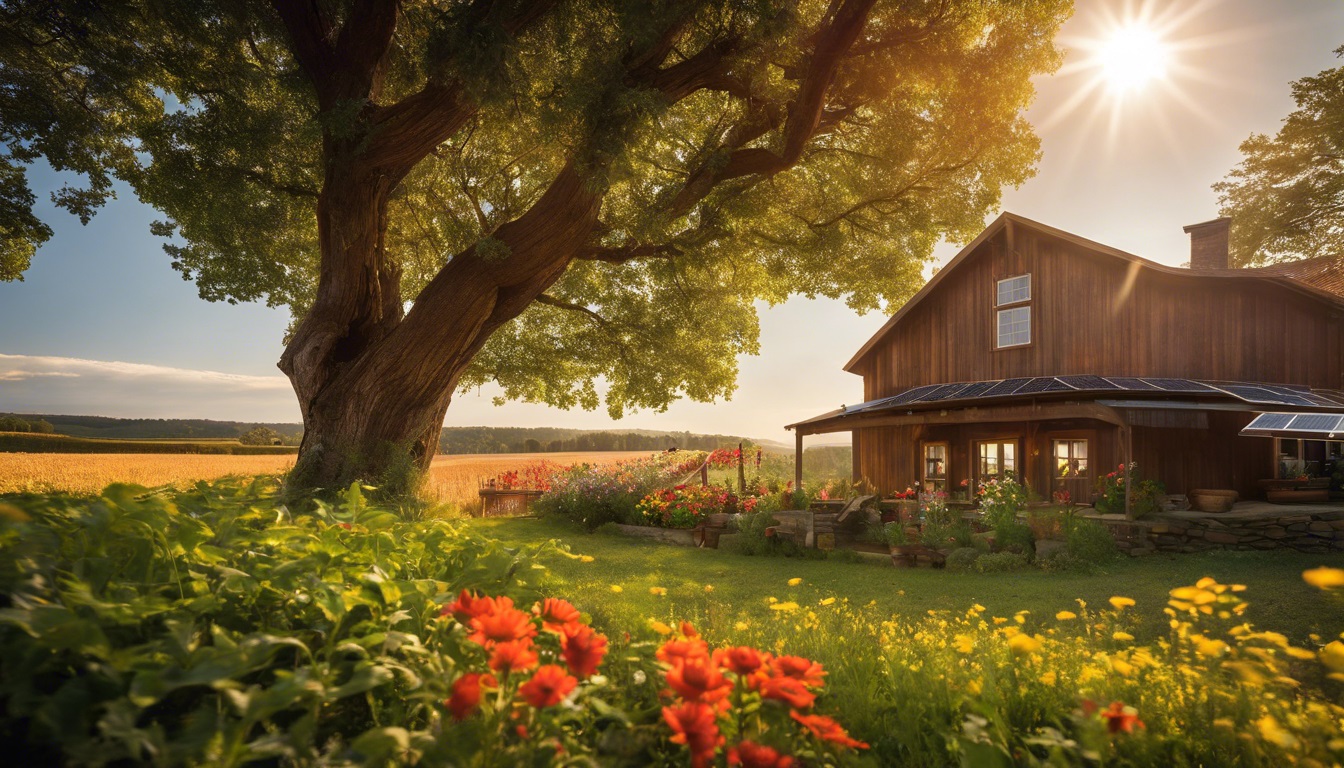
Reinforcing Home Security
When it comes to protecting your home during a power grid collapse, it’s important to have a solid security plan in place. This includes reinforcing your home’s entry points, such as doors and windows, with sturdy locks and bars. You may also want to consider installing a security system that includes motion sensors, cameras, and alarms.
In addition to physical security measures, it’s important to have a plan for monitoring your property. This can include setting up a neighborhood watch program, keeping an eye on your surroundings, and reporting any suspicious activity to local authorities.
Dealing with Looting and Marauders
In a power grid collapse scenario, there is a risk of looting and marauders. To protect yourself and your property, it’s important to have a plan in place for dealing with these threats. This can include having weapons on hand for self-defense, such as shotguns or handguns, and knowing how to use them safely and effectively.
It’s also important to have a plan for defending your property. This may include setting up barricades or fortifications, and having a group of trusted individuals to help defend your property.
Safe Room and Bunker Essentials
If you’re concerned about the safety of your family during a power grid collapse, you may want to consider setting up a safe room or bunker. This can provide a secure location where you can ride out the crisis and protect yourself from potential threats.
When setting up a safe room or bunker, it’s important to have essential supplies on hand, such as food, water, medical supplies, and communication devices. You may also want to consider having a backup power source, such as a generator or solar panels, to ensure that you have access to electricity during the crisis.
Overall, protecting your home and property during a power grid collapse requires careful planning and preparation. By taking the necessary steps to secure your property and defend against potential threats, you can increase your chances of surviving the crisis and coming out on the other side.
Frequently Asked Questions
What are the best alternative energy sources to rely on during a power grid collapse?
When the power grid fails, you can rely on alternative energy sources such as solar panels, wind turbines, and generators. Solar panels are a great option because they are easy to install and maintain. Wind turbines are another option, but they require more space and maintenance. Generators can provide power for a limited time, but they require fuel, which may be difficult to obtain during a crisis.
How can one ensure a continuous water supply without power grid electricity?
To ensure a continuous water supply, you can collect rainwater in barrels or tanks and filter it for drinking and cooking. You can also dig a well or use a hand pump to draw water from a nearby source. Additionally, you can use a solar-powered water pump to pump water from a well or stream.
What are effective communication strategies when the power grid fails?
When the power grid fails, communication can be difficult. You should have a backup communication plan in place, such as a two-way radio or satellite phone. You can also use a hand-cranked or solar-powered radio to receive emergency broadcasts.
How long can we realistically expect to survive without the power grid?
The length of time you can survive without the power grid depends on your level of preparedness and the severity of the crisis. With proper preparation, you can survive for several weeks or even months without the power grid.
What are the essential preparations for a potential power grid failure?
To prepare for a potential power grid failure, you should stock up on non-perishable food and water, first aid supplies, and other essential items. You should also have a backup power source, such as a generator or solar panels, and a way to purify water.
How can one sustainably live off-grid in the absence of traditional power sources?
To sustainably live off-grid, you can use alternative energy sources such as solar panels, wind turbines, and hydroelectric generators. You can also reduce your energy consumption by using energy-efficient appliances and lighting, and by using natural sources of heat and light, such as wood stoves and candles.

Leave a Reply